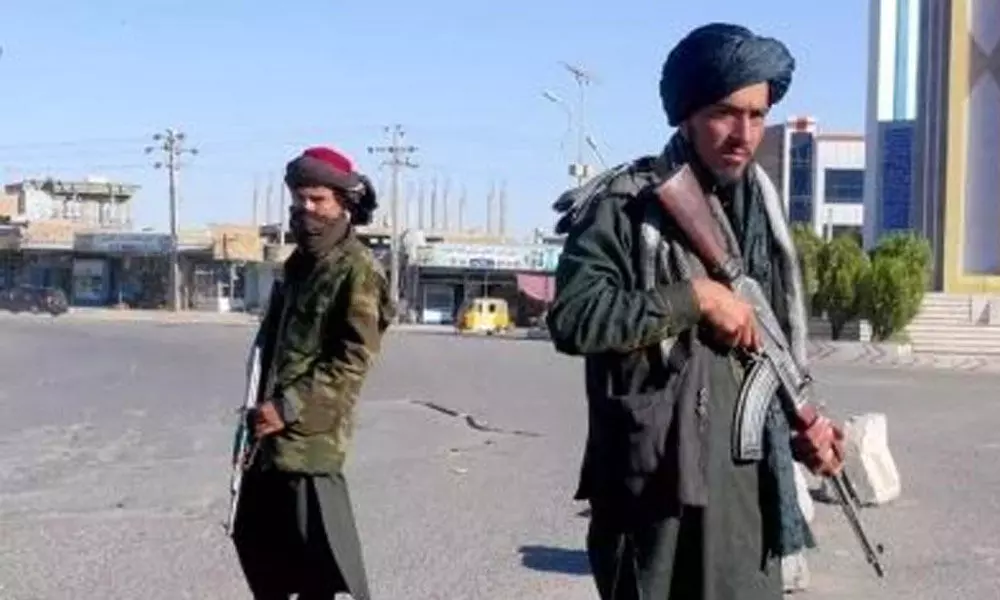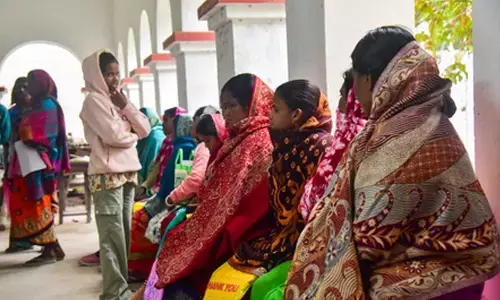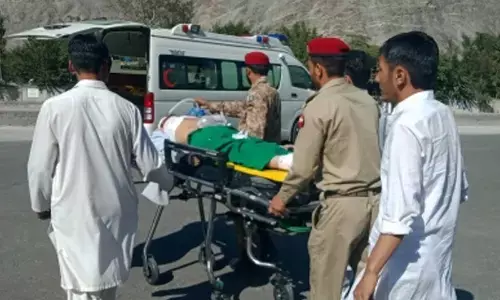Afghans lose hope under 6 months of Taliban rule

Afghans lose hope under 6 months of Taliban rule
The Taliban promised a new era of peace and prosperity but six months later, few in the country are content with their new rulers, RFE/RL reported
More than a million Afghans have fled reprisals, persecution, and a worsening humanitarian and economic crisis. Some 23 million people, the majority of the country's population of 39 million, face starvation. More than 1 million children are in danger of dying from malnutrition. And despite an end to the fighting, 3.5 million Afghans remain internally displaced, the report said.
The situation has cast a pall on the idea that the freedoms and rights enshrined in Afghanistan's partially defunct constitution will ever be honoured under the Taliban, whose government remains unrecognised worldwide. And with international aid and trade dwindling to a trickle, the aspirations of many Afghans have turned from hope of a better life to mere survival, the report said.
Before the Taliban takeover, Afghanistan was already one of the world's most impoverished and aid-dependent countries. Ahead of the withdrawal of foreign forces, many foreign companies and aid agencies also pulled out, and foreign funding to the government ceased entirely after the Taliban restored its hard-line Islamic emirate, RFE/RL reported.
International donors have since pledged billions in humanitarian aid designated to restore health care, education, and to provide food aid, but there are significant hurdles when it comes to delivering on those promises.
The United Nations warns that more than 97 per cent of Afghans will fall into poverty before summer, and the Afghan economy appears to be in free fall.
The country's trade has dramatically shrunk as international markets for Afghan produce have dried up. This week, hope for an injection of cash to keep the Afghan economy afloat suffered a major blow after US President Joe Biden issued an executive order to split $7 billion of frozen Afghan national bank reserves into humanitarian aid and payments for the victims of the September 11, 2001, terrorist attacks in the US.
A half-year later, the United Nations and human rights watchdogs continue to report grave abuses. The UN Assistance Mission in Afghanistan "continued to receive credible allegations of killings, enforced disappearances, and other violations," UN Secretary-General Antonio Guterres said in a report to the Security Council late last month.
Afghan women have endured the brunt of Taliban restrictions and discrimination. Most teenage Afghan girls are still waiting to return to school, while women have lost jobs, businesses, and the expanded societal roles they had gained over the past two decades, RFE/RL reported.
US unhappy about IS presence in Afghanistan
General Kenneth McKenzie, Commander of the US Central Command, has expressed concern about the presence of the Islamic State (IS) terror group in Afghanistan, adding that Washington is still "sorting out what is going to happen" since the Taliban came to power last August.
"IS concerns us in Afghanistan... We know that the Taliban are no friends, particularly of IS and in fact over the past couple of years, they have occasionally under-taken operations against IS," TOLO News quoted the General as saying in an interview.
"I think… what we see developing in Afghanistan is ungoverned and under-governed spaces which are areas were IS traditionally flourished and I think there is a risk, we know that IS does in fact have a desire to carry out external attacks, attacks against the US, the homeland of the US and attacks against the homeland of our neighbours in Europe and other places.
"So, I am concerned by what is happening in Afghanistan," he added.
In similar remarks, Secretary-General of the Collective Security Treaty Organization, Stanislav Zas, warned that the remergence of foreign terrorist groups, including the IS and Al Qaeda, are not only a threat to Afghanistan but to the whole region.
"We pay in our work particular attention to our southern borders. Afghanistan remains a long-term ongoing source of danger, given the unfolding socio-economic and humanitarian disaster stemming from the country, as well as the terrorist threat and the risk of drug trafficking. That is all increasing," he said.
However, the Taliban's Ministry of Defence have denied the claims regarding the presence of the IS and Al Qaeda in Afghanistan, TOLO News reported.
"We deny these reports. We assure all the people that the security forces of the Islamic Emirate are ready to fight the terrorists. There are no terrorists in Afghanistan," Inayatullah Khwarazami, a spokesman for the Ministry, said on Thursday. (IANS)
















